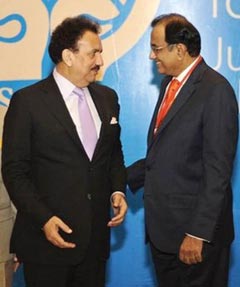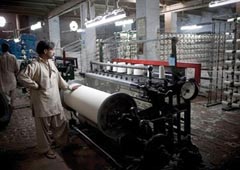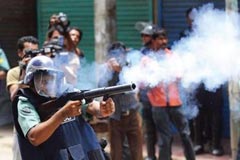|
|
|
ADVERTISEMENTS
|
|
PREMIUM
- HAPPY HOLIDAYS!
- Siliconeer Mobile App - Download Now
- Siliconeer - Multimedia Magazine - email-Subscription
- Avex Funding: Home Loans
- Comcast Xfinity Triple Play Voice - Internet - TV
- AKSHAY PATRA - Bay Area Event - Sat. Dec 6
- Calcoast Mortgage - Home Loans
- New Homes in Silicon Valley: City Ventures - Loden Place - Morgan Hill
- Bombay to Goa Restaurant, Sunnyvale
- Buying, Sellling Real Estate in Fremont, SF Bay Area, CA - Happy Living 4U - Realtor Ashok K. Gupta & Vijay Shah
- Sunnyvale Hindu Temple: December Events
- ARYA Global Cuisine, Cupertino - New Year's Eve Party - Belly Dancing and more
- Bhindi Jewellers - ROLEX
- Dadi Pariwar USA Foundation - Chappan Bhog - Sunnyvale Temple - Nov 16, 2014 - 1 PM
- India Chaat Cuisine, Sunnyvale
- Matrix Insurance Agency: Obamacare - New Healthcare Insurance Policies, Visitors Insurance and more
- New India Bazar: Groceries: Special Sale
- The Chugh Firm - Attorneys and CPAs
- California Temple Schedules
- Christ Church of India - Mela - Bharath to the Bay
- Taste of India - Fremont
- MILAN Indian Cuisine & Milan Sweet Center, Milpitas
- Shiva's Restaurant, Mountain View
- Indian Holiday Options: Vacation in India
- Sakoon Restaurant, Mountain View
- Bombay Garden Restaurants, SF Bay Area
- Law Offices of Mahesh Bajoria - Labor Law
- Sri Venkatesh Bhavan - Pleasanton - South Indian Food
- Alam Accountancy Corporation - Business & Tax Services
- Chaat Paradise, Mountain View & Fremont
- Chaat House, Fremont & Sunnyvale
- Balaji Temple - December Events
- God's Love
- Kids Castle, Newark Fremont: NEW COUPONS
- Pani Puri Company, Santa Clara
- Pandit Parashar (Astrologer)
- Acharya Krishna Kumar Pandey
- Astrologer Mahendra Swamy
- Raj Palace, San Jose: Six Dollars - 10 Samosas
CLASSIFIEDS
MULTIMEDIA VIDEO
|
|
|
|
|
NEWS DIARY
India and Pakistan Vow to Tackle Terrorism Together
Debt/ GDP 61%
Strike Disrupts
Conference on Widows
India and Pakistan Vow to Tackle Terrorism Together
 Pakistani Interior Minister Rehman Malik (l) chats with India's Home Minister P. Chidambaram in Islamabad. Pakistani Interior Minister Rehman Malik (l) chats with India's Home Minister P. Chidambaram in Islamabad.
India has pressed Pakistan to put more suspects on trial for alleged links to the 2008 Mumbai attacks in a sign of persistent tensions between the nuclear-armed rivals, who are trying to resume peace talks.
But in an indication that relations might be beginning to thaw, the two countries ended the day by vowing to work together to bring those who planned the assault to justice.
Indian Home Minister Palaniappan Chidambaram said he had raised the issue with Pakistan's interior minister during meetings of the South Asian Association for Regional Cooperation in Islamabad.
"We must ensure that terrorists have no free run either in Pakistan or India, and both countries must work together," he said. Chidambaram did not say whom New Delhi wants to see prosecuted in Pakistan, but Indian authorities had earlier pointed to hard-line cleric Hafiz Sayeed.
Sayeed is a founder of Lashkar-i-Taiba, a banned Pakistani militant group blamed in the attacks that killed 166 people in India's financial capital. Pakistan has arrested at least seven other people in connection with the attacks, but its courts have ruled that there is not enough evidence to detain Sayeed.
In a sign of the cooperation the rivals committed to, Pakistani Interior Minister Rehman Malik said his country had received additional information from India about the attacks.
|TOP|
Debt/ GDP 61%
 A textile worker in a factory in Faisalabad, Pakistan. Pakistan’s debt-to-GDP has gone up alarmingly. A textile worker in a factory in Faisalabad, Pakistan. Pakistan’s debt-to-GDP has gone up alarmingly.
Pakistan's central bank said the country's total debt-to-GDP ratio has crossed 61 percent during the current fiscal year, breaching the 60 percent limit set under the Fiscal Responsibility and Debt Limitation Act, local media reported.
According to the report of the State Bank of Pakistan on its official Web site, Pakistan's external debt-to-GDP ratio hit 30 percent while the domestic debt-to-GDP ratio mounted to an alarming level of 31 percent.
Despite better performance on the external front, domestic public debt remains on the rise, up by 20 percent during the 11 months of the current fiscal year, said the report.
Pakistan has been facing the burden of mounting debt pressure. The same stems from escalating fiscal deficit of the country as compared to the budgetary estimates.
During the current fiscal year of 2010 which closes at end of June, the fiscal deficit rose to 5.2 percent of the GDP against the budgeted 4.7 percent. The domestic side remained a prominent source of financing fiscal deficit.
A differentiating factor came in the form of the International Monetary Fund's budgetary support under its augmented funding plan for Pakistan.
The contribution of the IMF funding in the overall external financing of the country has risen. The IMF's total share in external debt has risen from 4 percent in the fiscal year of 2006 to 14 percent till the third quarter of the current fiscal year.
Contribution of public debt under total external debt dropped to 82 percent from 91 percent in fiscal year 2006.
The disbursements under the IMF program are expected to conclude in fiscal year 2011, but it remains to be seen whether the government will seek further budgetary support from the global donor during fiscal year 2011 in case additional inflows from sources such as the United States under the Kerry-Lugar and Tokyo pledges fail to materialize on time.
|TOP|
Strike Disrupts
 A Bangladeshi policeman fires a tear gas shell against demonstrators. A Bangladeshi policeman fires a tear gas shell against demonstrators.
Bangladesh police wielded batons to stop marches by thousands of anti-government protesters taking part in the first general strike in over three years, which the opposition hopes can force early elections.
The strike, called by the main opposition Bangladesh Nationalist Party and its ally Jamaat-e-Islami, halted public transport and kept most businesses shut across the impoverished country, which economists estimated could lose an overall $250 million ($from the stoppage.
The general strike was the first large-scale challenge by the BNP, led by Begum Khaleda Zia, to her rival Prime Minister Sheikh Hasina who took office in January 2009.
It was also the first strike since January 2007, when an army-backed interim government took power, ending months of political unrest.
"I warn the government not to play foul or behave undemocratically to thwart the strike that is aimed at telling the people about their misdeeds and failures," Khaleda told reporters.
"The people strongly support our action."
Government offices and banks, however, remained open but with less staff than usual. The stock markets of Dhaka and Chittagong were also trading as usual and the country's main ports were still handling cargo, officials said.
At least 25 protesters marching down the streets of the capital Dhaka were injured, and dozens detained, in scuffles with police. Some vehicles, including a public transport bus, were set ablaze by the demonstrators.
BNP and Jamaat-e-Islami said the strike was intended to draw public attention to the government's "failures and excesses" and to give impetus to opposition demands for a mid-term election. Bangladesh is due to hold parliamentary elections in 2013.
Hasina dismissed the strike, saying it was aimed at creating anarchy.
|TOP|
Conference on Widows
An international conference on the rights of widows is being hosted in the Nepalese capital Kathmandu.
The organizers hope it will highlight the plight of thousands of women who face discrimination and economic hardship after becoming widows.
The two-day conference on the challenges they face is being attended by representatives from Asia, Europe and the United States.
The aim is to create a worldwide effort to help widows fight injustice.
Discrimination against widows is particularly severe in Nepal where many women lost their husbands during the country's 10-year civil conflict in which an estimated 16,000 people were killed.
Widows are often blamed for these deaths, forced to wear white and are banned from participating in family rituals and ceremonies.
Seen as bad omens, they are often hidden away from public life and forced to work as unpaid domestic servants.
In his opening address to the conference, the Nepalese minister for Women, Children and Social Welfare said the government would gather accurate figures on the number of widows in the country's next census, due to take place in 2011.
He also pledged to abolish laws that discriminate against single women which he said would help raise their status in society.
|TOP|
|
|
|
|
|
|